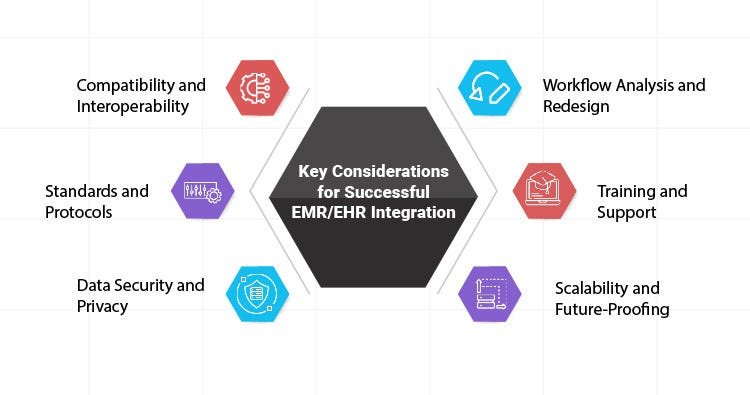In today’s world, hospitals and doctors are changing how they keep track of our health records. Instead of using paper, they are moving to digital systems known as Electronic Health Records (EHRs). This change is very important because it helps different healthcare providers to work together better by sharing information easily and quickly.
In this article, we will explain how EHRs help improve this connection between different healthcare services. We will look at the benefits, real-world uses, and what the future holds for EHRs in making healthcare services more connected and efficient.
Benefits of EHRs in Enhancing Interoperability
What are EHRs? Electronic Health Records, or EHRs, are digital versions of a patient’s medical history. They are kept by doctors and hospitals to make sure that a patient’s health information is complete and up-to-date.
Making Sharing Easy EHRs make it easy for doctors and nurses to get the health information they need to take care of you, no matter where you are treated. This means that if you see a specialist or need treatment at a hospital, your information can be quickly sent to the people who need it.
Better Coordination Having all your health information in one place helps your doctors coordinate your care. They can see what treatments you’ve already had, which medicines you are taking, and your past health problems. This means they can make better decisions about your care.
Cutting Down on Repeat Tests Sometimes, you might be asked to do the same tests by different doctors. EHRs can help reduce this by sharing your test results with all your healthcare providers. This not only saves you time and discomfort but also cuts down on healthcare costs.
Real-World Applications of EHRs
Examples of Success There are many stories of how EHRs have helped improve healthcare. For instance, some hospitals have used EHRs to quickly find out which treatments work best for patients with certain conditions, leading to better outcomes.
Trends Around the World Countries around the world are adopting EHRs because they see the benefits they bring to healthcare. This move towards digital records is helping to improve healthcare systems globally.
Working with Other Technologies EHRs can work with other modern technologies like telemedicine, which lets doctors treat patients through video calls, and artificial intelligence, which helps in making better health predictions and treatment plans.
Challenges and Solutions in EHR Interoperability
Common Problems While EHRs are very helpful, there are some challenges like keeping patient information safe and making sure different EHR systems can work together.
Finding Solutions To solve these problems, new technologies and rules are being developed. For example, better ways to protect data and agreements on how to share information between different systems are being put in place.
Looking to the Future The future of EHRs looks promising. With ongoing improvements, we can expect even better coordination among different healthcare providers, leading to better health outcomes for patients.
Conclusion
Electronic Health Records are changing the way healthcare providers communicate and work together. They help in making sure that your health information is available wherever it is needed, which leads to better care and fewer unnecessary tests. As technology improves, EHRs will continue to make healthcare more connected and efficient, improving the lives of patients everywhere.
